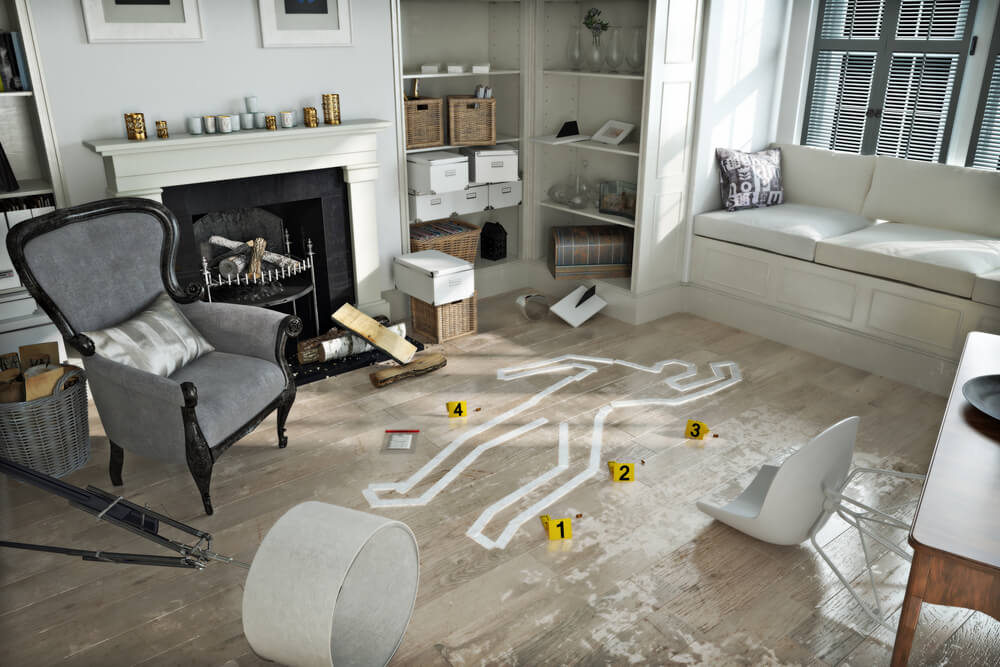Crime scene cleanup is a grueling job that requires immense attention to detail and often means working overnight. This job is the responsibility of property owners or next of kin. It involves removing blood, fluids, tissue, and hazardous materials that can cause infection or disease if not treated properly.
Crime scene cleaners are equipped mentally and physically to handle homicides, traffic deaths, decomposition/undiscovered deaths, and suicides. They are licensed waste carriers and can safely dispose of contaminated material. Click https://www.allproutah.com/ to learn more.

In many cases, after the police unwind their crime scene tape and homicide detectives survey the site, the next of kin is left to clean up the gruesome aftermath. This is a burden that no one wants to shoulder but is often necessary. Fortunately, some professionals specialize in this type of cleanup, called crime scene cleaners or biohazard remediation technicians. These are iron-stomached, steel-nerved people trained to deal with the unthinkable and harrowing scenes of blood, bodily fluids, and tissue matter that can be present after a death or crime.
Their work can be traumatic, but they have a job and must focus on their task while being compassionate towards grieving family members. Crime scene cleaners often wear liquid-impermeable hazmat suits with shoe covers, safety glasses, and full-face respirators for their protection and the safety of those they are working with.
They also must make sure they can decontaminate the site and return it to its pre-crime state before they can begin their work. Depending on the situation, this may include removing hazardous waste such as needles and knives left behind. Crime scene cleanup involves thoroughly assessing, clearing, disinfecting, and deodorizing the area.
The only way they can do this successfully is to have a strong stomach and separate their emotions from the job required. Despite the negative connotations, this is different from the type of job most people want to undertake, so it should only be considered if you are confident you can handle it.
Blood, bodily fluids, and fingerprint dust are just a few of the many daily hazards that crime scene cleaners face. These bio-hazardous materials can contain infectious diseases like HIV, Hepatitis C, Cholera, and Tuberculosis. Crime scene cleaning professionals have received specialized training in safely remediating areas exposed to these hazardous materials.
Because of this, it is not recommended that anyone attempt to clean a crime or trauma scene on their own. This type of cleaning requires special equipment, industrial chemicals, and the proper disposal of biological waste. It is also a highly regulated industry with strict guidelines set by the Occupational Safety and Health Administration.
Crime scene cleanup professionals use personal protective equipment (PPE) such as liquid-impermeable hazmat suits, gloves, and safety glasses to protect themselves from exposure to bloodborne pathogens and other contaminants that may be present at a scene. In addition to the PPE, they use traditional cleaning supplies such as mops, buckets, spray bottles, brushes, and scrapers. These are all discarded after the job and sent to a biohazardous waste container for safe disposal.
When working at a crime or accident scene, cleanup crews must be careful not to disrupt any ongoing investigations that could lead to further injury or death for local law enforcement officials. This is why it’s important to work with a crime scene cleanup company that coordinates with police officers and other relevant authorities to ensure that all evidence has been collected before beginning any remediation efforts.
Crime and accident scenes often contain remnants of a tragic event, including sharp objects that can cause physical harm. These hazards can pose serious threats to the safety of workers and residents, and they must be removed by professionals who are familiar with the appropriate safety precautions.
Crime scene cleanup experts must be properly outfitted with personal protective equipment (PPE). This includes gloves, gowns, shoe covers, head covers, masks, respirators and eye protection. Gloves protect hands when directly handling contaminated surfaces, gowns prevent the contamination of clothing, and a face mask provides splatter protection for the nose and mouth. For eyes, a pair of goggles protects blood and other fluids that can be splattered on the face. Booties and two sets of gloves also help keep the feet and hands-free from contaminants.
The full-body coverall that crime scene cleaning experts wear is designed to meet Occupational Safety and Health Administration (OSHA) standards and the specific requirements for decontamination, exposure control, training programs, medical waste disposal, and disinfectant selection. Typically, these coveralls include long sleeves with elastic wrists and ankles to keep the sleeves and pant legs from riding up and exposing the skin to body fluids or harsh chemicals.
Another important piece of PPE is an apron worn over the work clothing to protect against splash and spilling of harsh chemical solutions, biological materials, or bodily fluids. Additionally, to combat the heat of working in a full-body coverall, it is normal for crime scene and disease cleanup experts to wear a cooling vest.
Finally, since blood is the primary carrier of infection, it is very common for crime scene cleanup professionals to wear two pairs of gloves to ensure their hands are protected. Because of the horrendous odor of a decomposing body, it is normal for these workers to also wear a face mask and a respirator as part of their PPE.
The blood and bodily fluids left behind at a crime scene can contain bacteria, viruses, and other pathogens that could cause serious health problems in anyone who comes into contact with them. Crime scene cleaners use disinfectants to thoroughly clean and decontaminate the area and restore it to a safe, healthy environment.
Disinfectants used by crime scene cleaners include bleach and peroxide, which are effective disinfectants. They also use enzyme solutions that re-liquefy blood and other bodily fluids to remove them from surfaces. Crime scene cleaners also use chemicals to destroy stains and biohazards from fabrics, wood, paint, and other porous materials.
Unlike traditional cleaning supplies, these chemicals are designed to destroy bacterial and viral contaminants without damaging the surface on which they are applied. They are also often applied using high-pressure washers to ensure they reach deep into all cracks and crevices.
Crime scene cleanup is a highly specialized service that takes significant training and knowledge to perform properly. Forensic cleaners are trained to take extra precautions with every process step to avoid further contamination or damage to a property and its contents.
It is important to understand that it doesn’t have to be a violent crime for you to need a crime scene cleanup service. Unattended deaths, suicides, drug overdoses, and accidents require professional forensic cleaners to remediate and restore the scene. Leaving a crime scene alone can create a dangerous situation for anyone who enters the home and can impact the overall sale valuation of the property. In addition to re-creating the scene as it was before the incident, a professional crime scene cleanup team can also provide additional services such as odor removal.
After police officers, paramedics, and coroners do their jobs and remove any evidence from a crime scene, it is up to professional cleaners to disinfect and clean the location. A thorough crime scene cleanup involves removing any indicators of the incident and any blood or other bodily fluids left behind.
Because blood and other bodily fluids are potential sources of infection, crime scene cleanup workers must take the necessary precautions when handling these materials. They are required to wear protective gloves and masks and use specialized disinfectants.
As part of their crime scene cleaning process, professionals often run ozone through the area to further decontaminate and eliminate any remaining biohazards at the scene. Ozone works by changing the oxygen molecules in the air and removing bacteria and odors. Crime scene cleaners will also wipe down and sanitize all surfaces, furniture, and items in the area. They will then remove and properly dispose of all waste material.
